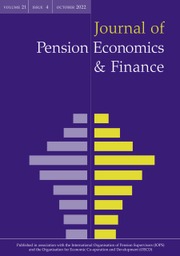Article contents
Are there positive incentives from privatizing social security? A panel analysis of pension reform in Latin America
Published online by Cambridge University Press: 01 August 2002
Abstract
The paper estimates the impact of social security reform – specifically, the transition from a purely public pay-as-you-go (PAYGO) system to one with private individual retirement accounts – on the share of the workforce that contributes to formal retirement security systems. Using a simple model of a segmented labor market, the paper exploits variation in data from a panel of eighteen Latin American countries, observed from 1980 to 1999. Results show a positive incentive effect after the introduction of individual retirement accounts that, ceteris paribus, increases the share of the economically active population who contribute to the reformed system. However, this takes place only gradually as employers and workers become familiar with the set of new social security institutions that reforms put in place.
- Type
- Research Article
- Information
- Copyright
- © 2002 Cambridge University Press
- 9
- Cited by




